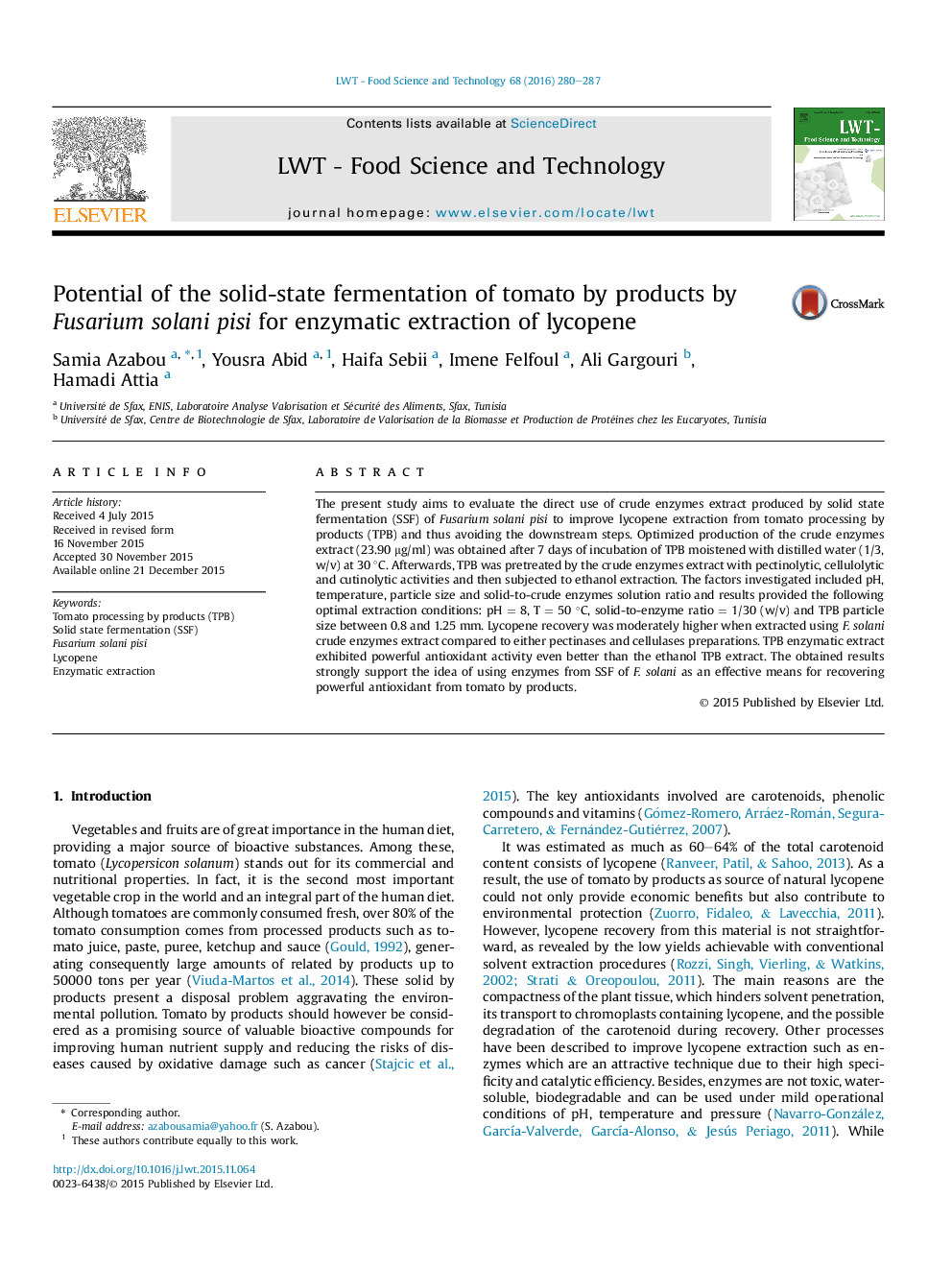| Article ID | Journal | Published Year | Pages | File Type |
|---|---|---|---|---|
| 4563647 | LWT - Food Science and Technology | 2016 | 8 Pages |
•A novel SSF with Fusarium solani on TPB was used to produce hydrolytic enzymes for lycopene extraction.•Different conditions were optimized for lycopene extraction from TPB using SSF-derived enzymes.•Higher yields of lycopene obtained using SSF-derived enzymes compared to conventional extraction.•Application of SSF-derived enzymes can improve antioxidant capacity of TBP extract.
The present study aims to evaluate the direct use of crude enzymes extract produced by solid state fermentation (SSF) of Fusarium solani pisi to improve lycopene extraction from tomato processing by products (TPB) and thus avoiding the downstream steps. Optimized production of the crude enzymes extract (23.90 μg/ml) was obtained after 7 days of incubation of TPB moistened with distilled water (1/3, w/v) at 30 °C. Afterwards, TPB was pretreated by the crude enzymes extract with pectinolytic, cellulolytic and cutinolytic activities and then subjected to ethanol extraction. The factors investigated included pH, temperature, particle size and solid-to-crude enzymes solution ratio and results provided the following optimal extraction conditions: pH = 8, T = 50 °C, solid-to-enzyme ratio = 1/30 (w/v) and TPB particle size between 0.8 and 1.25 mm. Lycopene recovery was moderately higher when extracted using F. solani crude enzymes extract compared to either pectinases and cellulases preparations. TPB enzymatic extract exhibited powerful antioxidant activity even better than the ethanol TPB extract. The obtained results strongly support the idea of using enzymes from SSF of F. solani as an effective means for recovering powerful antioxidant from tomato by products.
